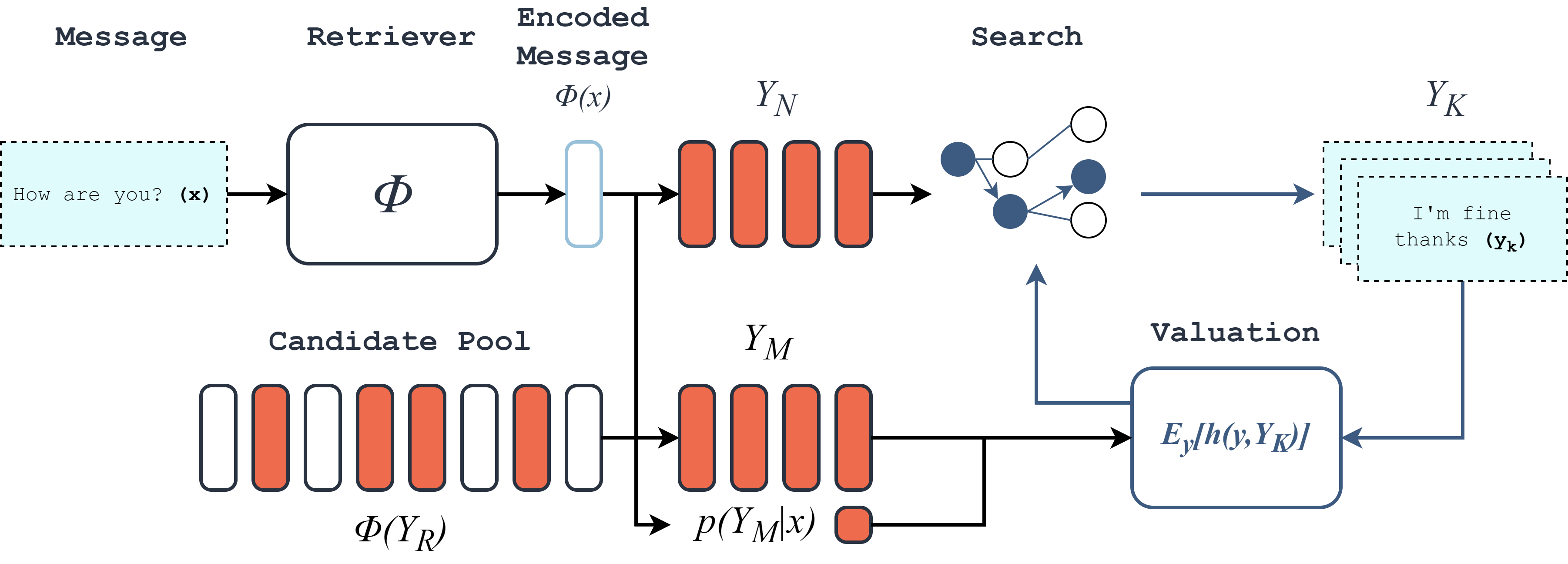Model-Based Simulation for Optimising Smart Reply
Published in ACL, 2023
Recommended citation: Model-Based Simulation for Optimising Smart Reply (Towle & Zhou, ACL 2023). http://academicpages.github.io/files/2023-acl.pdf
Smart Reply (SR) systems present a user with a set of replies, of which one can be selected in place of having to type out a response. To perform well at this task, a system should be able to effectively present the user with a diverse set of options, to maximise the chance that at least one of them conveys the user’s desired response. This is a significant challenge, due to the lack of datasets containing sets of responses to learn from. Resultantly, previous work has focused largely on post-hoc diversification, rather than explicitly learning to predict sets of responses. Motivated by this problem, we present a novel method SimSR, that employs model-based simulation to discover high-value response sets, through simulating possible user responses with a learned world model. Unlike previous approaches, this allows our method to directly optimise the end-goal of SR–maximising the relevance of at least one of the predicted replies. Empirically on two public datasets, when compared to SoTA baselines, our method achieves up to 21% and 18% improvement in ROUGE score and Self-ROUGE score respectively.
Recommended citation: Model-Based Simulation for Optimising Smart Reply (Towle & Zhou, ACL 2023).

